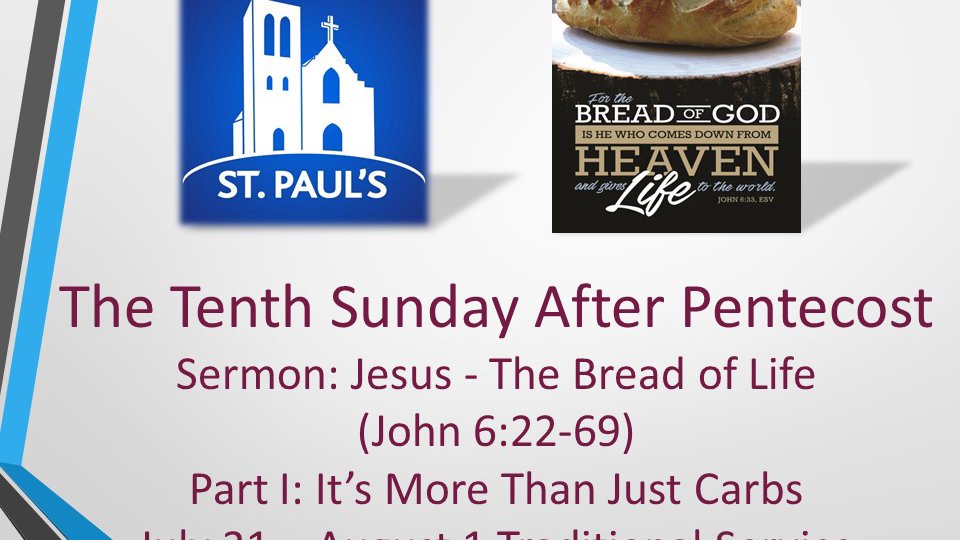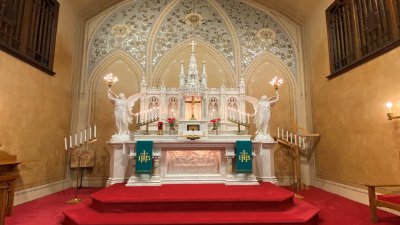Bread, in one form or another, is a diet staple in most every culture. Though today we can be overwhelmed at the grocery store with countless types and styles, even in its simplest form, bread continues to sustain stomachs in a variety of ways. Bread, or the simplest form of manna, is what the Lord would use to sustain His people in the wilderness, and the image of bread is what He would use to help people understand the greater gift He came to give in His own Son. Yet, more than sustaining a diet for this body and life, Jesus, the bread of life, has come to serve us salvation, sustain our souls, and feed us with His forgiveness.

08/01/21 Traditional Service
Sermon Series: Jesus - The Bread of Life (John 6:22-69) Part I: It’s More Than Just Carbs John 6:
August 1, 2021 • Rev. Kenny Hsu • John 6:22–35
04/14/24 Praise Service
April 14, 2024
AS WE GATHER “Amazing” is a commonly used word in the English that has a rich history. It came into common usage in the 14th century as a variant of the older root word “amasod,” which meant stupefied or confounded or overwhelmed with sudden surprise or wonder. The word “amazing” shows up several times in hymns that we sing—from describing the action of God in the birth of Jesus as “love amazing” (LSB 375:1) to bringing to our hearts and minds that in His suffering to pay the price of our sins, our Lord showed “amazing pity” (LSB 437:2). Two other hymns refer to the “amazing grace” of God (LSB 744:1; 558:2), and in another hymn, the author of the text rejoices that God “has done amazing things to me” (LSB 934:2). The season of Easter is a time for us to be truly amazed and filled with the praise of our amazing Lord!
04/14/24 traditional Service
April 14, 2024
AS WE GATHER “Amazing” is a commonly used word in the English that has a rich history. It came into common usage in the 14th century as a variant of the older root word “amasod,” which meant stupefied or confounded or overwhelmed with sudden surprise or wonder. The word “amazing” shows up several times in hymns that we sing—from describing the action of God in the birth of Jesus as “love amazing” (LSB 375:1) to bringing to our hearts and minds that in His suffering to pay the price of our sins, our Lord showed “amazing pity” (LSB 437:2). Two other hymns refer to the “amazing grace” of God (LSB 744:1; 558:2), and in another hymn, the author of the text rejoices that God “has done amazing things to me” (LSB 934:2). The season of Easter is a time for us to be truly amazed and filled with the praise of our amazing Lord!
04/07/24 Traditional Service
April 7, 2024
AS WE GATHER When Thomas finally met Jesus, alive again after Easter, he went from demanding proof to a personal confession of faith, “My Lord and my God.” It would have been a different story had the news been false. The rest of the Jerusalem congregation truly exhibited Easter faith when they became a welcoming community, one that shared with newcomers whatever they needed. The news was unbelievable, but so were the responses—in word and deed as faith saw the freeing truth: we need fear nothing, not even death. We have heard the news as well. How shall we respond?





